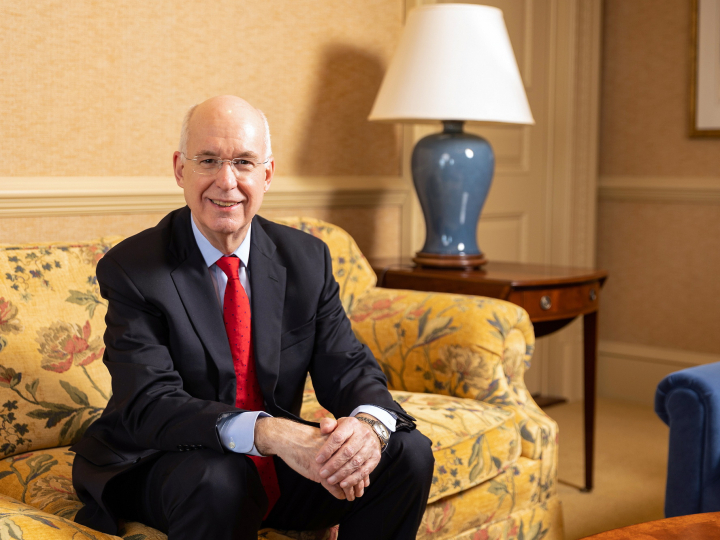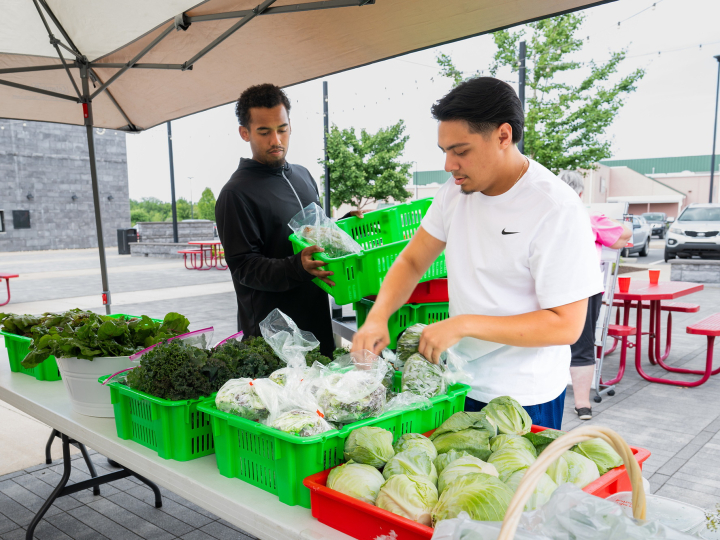An Inside Look at Summer Research
July 27, 2017
Learning doesn't take a vacation at Bucknell University.
Each summer dozens of undergraduate research interns return to campus to immerse themselves in a single project and work in close collaboration with faculty advisers. It's a signature experience of a Bucknell education that provides in-depth opportunities for self-motivated inquiry and rich engagement with the subjects that fascinate students the most.
Research interns receive support from the University in the form of housing and a $3,000 stipend to cover living expenses over the summer. In return, the students must share what they learn at the annual Kalman Research Symposium the following April.
While some labs in the sciences employ as many as eight to 10 students, summer research opportunities are available to all Bucknell students - all that's required to apply is a good idea and the support of a faculty member. Support for internships comes from a variety of sources, including the University at large, individual departments and colleges, dedicated endowments and even partnerships with area nonprofits such as the Geisinger Health System.
Learn how Bucknellians are spending their summers in this, the first in a two-part series.
Lindsey Baker '19, geology
I'm working with Professor Chris Daniel in the geology department along with Chelsea Reynolds '19. We make a great team!
"We are studying the tectonic history of southern Colorado and northern New Mexico by gathering pressure and temperature estimates at which the rocks formed in the Wet Mountains and Santa Fe Range. Using this data, we can uncover how these mountain ranges formed, how old they are, when they began shifting and how tall they used to be in the past.
"I've always loved doing outdoor activities like hiking and camping, so what better major to pick than geology? This project is also close to my heart because I grew up in Colorado and now see the state in a different, yet very beautifully scientific, light."
Dante Fresse '18, English – film/media studies
"This summer I will produce a digital documentary that explores the military careers and lives of Bucknell alumni who served in the First World War. For the past four years my faculty supervisor, Professor of History David Del Testa, has been researching the lives and experiences of the more than 715 Bucknellians who served during World War I. Drawing from the collective research efforts of Bucknell students and faculty, this project will identify and examine sites of historical, biographical and military importance in Europe during these Bucknell veterans' time of service.
"Shooting for this documentary took place from May 23 to June 3 and involved intense educational travel and study in northern France and Belgium. The finished film will document the emotional journeys and historical discoveries of student and faculty researchers who have worked with this project for several years. Our team hopes to illuminate the significant role of Bucknell in the First World War, as well as provide an organic viewpoint of both the student-faculty collaboration and our team's research experience.
"Having the opportunity to visit and film several beautiful, emotionally moving memorials, service ceremonies and battlegrounds in Western Europe has left me with the opportunity to tell an impactful story of our brave alumni and veterans whose memory has been immortalized through architecture, landscape and historical geography."
Zilin Ma '19, physics and Joseph DiPalma '19, computer science & engineering
"This summer we are working with Professor Joshua Stough of the computer science department and Dr. Christopher Haggerty of the Geisinger Health System.
"We are using machine learning to automatically pore over decades' worth of cardiac MRI data in partnership with Geisinger Health. This data can be useful in studying cardiac disease for a particular patient, or over whole populations. But currently it takes a skilled technician a long time to manually draw the heart muscle contours for thousands of images. We are building a neural network that will automatically produce these contours for the Geisinger data. In the future, this research will be used to help doctors more quickly and accurately evaluate cardiac MRI results. This will result in faster and more effective treatment.
"This opportunity has allowed us to explore the real-world applications of computational models. Professor Stough's prior experience in machine learning and image processing has been a vital asset for this research experience. Working with Professor Stough has given us valuable knowledge that we will continue to use throughout our education and future careers."

